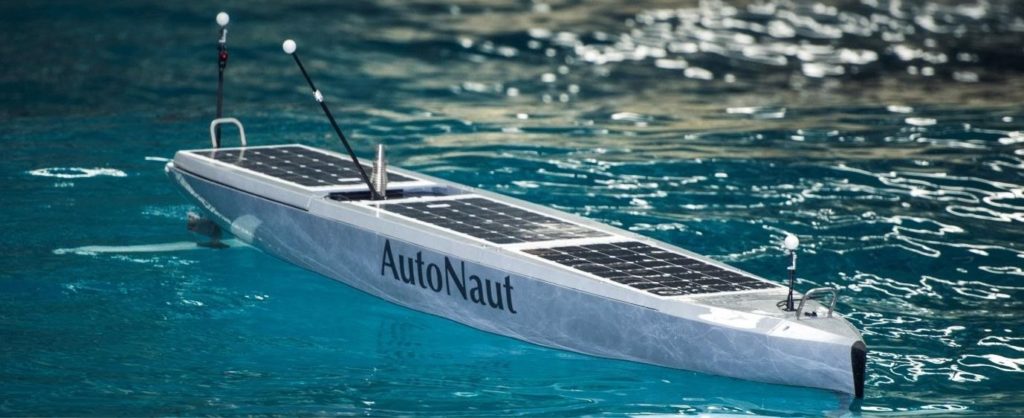
Student research radiation levels
in the world’s oceans
Budding young scientists look to analyse radiation levels in the ocean in real time. It’s all part of the research project CERN@sea, based at Simon Langton Grammar School for Boys in Canterbury. The students will investigate radiation levels near nuclear reactors such as Sellafield or Fukushima.
Normally water samples are taken and sent to a lab to be processed, meaning experimental data is limited by the amount of samples that can be taken and transported. However the CERN@sea team has configured a RasPix detector chip (which runs off a Raspberry Pi) that can capture radiation levels in real time and upload all the results online for instant analysis.
How do they get the detector on the water? Meet the AutoNaut, a 5-metre autonomous vessel that is powered by the waves and so needs no fuel. Designed by an innovative company in Chichester who aims to revolutionise the way marine science is conducted, it enables continuous missions of more than six months.
The RasPix detector has been on its first test deployment, just off the coast of Plymouth. The team will begin to analyse data and will make it public as soon as possible.